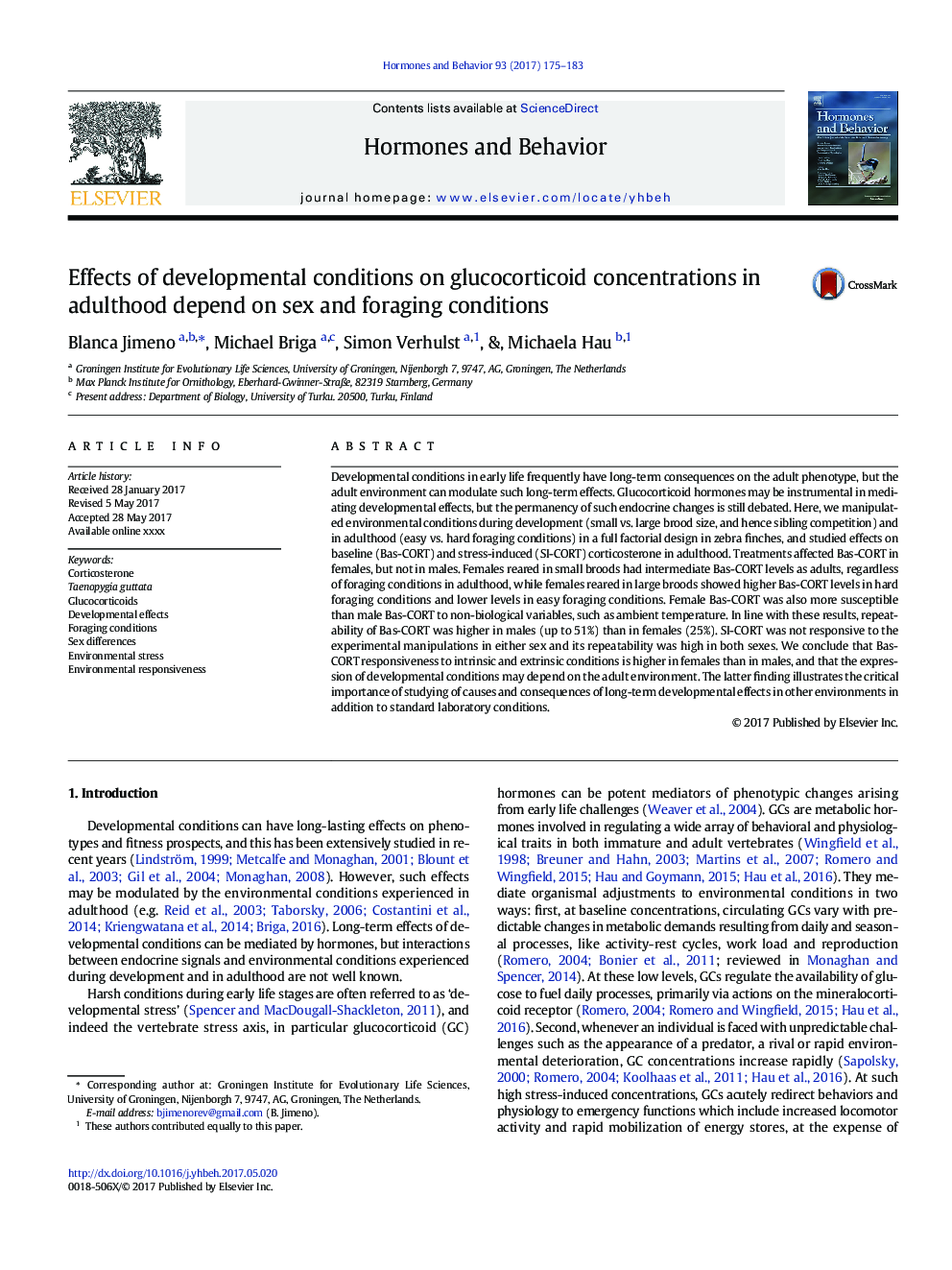| Article ID | Journal | Published Year | Pages | File Type |
|---|---|---|---|---|
| 4931136 | Hormones and Behavior | 2017 | 9 Pages |
Abstract
Developmental conditions in early life frequently have long-term consequences on the adult phenotype, but the adult environment can modulate such long-term effects. Glucocorticoid hormones may be instrumental in mediating developmental effects, but the permanency of such endocrine changes is still debated. Here, we manipulated environmental conditions during development (small vs. large brood size, and hence sibling competition) and in adulthood (easy vs. hard foraging conditions) in a full factorial design in zebra finches, and studied effects on baseline (Bas-CORT) and stress-induced (SI-CORT) corticosterone in adulthood. Treatments affected Bas-CORT in females, but not in males. Females reared in small broods had intermediate Bas-CORT levels as adults, regardless of foraging conditions in adulthood, while females reared in large broods showed higher Bas-CORT levels in hard foraging conditions and lower levels in easy foraging conditions. Female Bas-CORT was also more susceptible than male Bas-CORT to non-biological variables, such as ambient temperature. In line with these results, repeatability of Bas-CORT was higher in males (up to 51%) than in females (25%). SI-CORT was not responsive to the experimental manipulations in either sex and its repeatability was high in both sexes. We conclude that Bas-CORT responsiveness to intrinsic and extrinsic conditions is higher in females than in males, and that the expression of developmental conditions may depend on the adult environment. The latter finding illustrates the critical importance of studying of causes and consequences of long-term developmental effects in other environments in addition to standard laboratory conditions.
Keywords
Related Topics
Life Sciences
Biochemistry, Genetics and Molecular Biology
Endocrinology
Authors
Blanca Jimeno, Michael Briga, Simon Verhulst, Michaela Hau,
